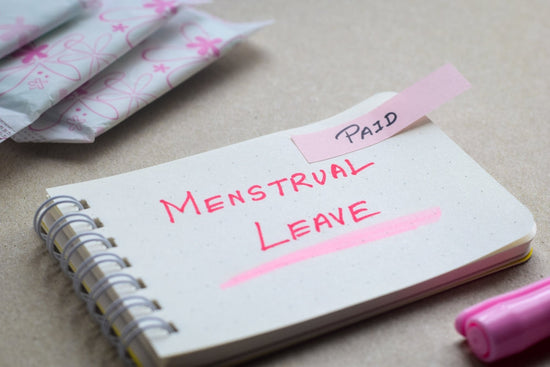Your period will actually only start in a few
What are PMS symptoms?
PMS is the abbreviation for premenstrual syndrome and describes various symptoms that can become noticeable before the onset of menstruation. PMS often comes with a whole variety of different Symptoms , which then recur with each cycle. To be precise, there is a range of 150 different PMS symptoms. We have listed some of them below. complaints listed that can occur with PMS:
Pain in the abdomen
Sleep disorders (too much or too little sleep)
irritability
Water retention
Circulatory problems
Mood swings
Migraine attacks
Skin diseases
Find the right Taynie for you.Discover our diversity!
What triggers PMS?
You have no idea why this annoying disorder called premenstrual syndrome occurs? Then let us take a look at the Causes Although the exact cause of PMS is not clear, it can be said that it is likely that it is related to the Hormone balance However, it is assumed that, due to the many different symptoms of PMS, there could be a variety of causes. For example, a high prolactin level can lead to an imbalance of the hormones progesterone and estrogen. The result? Those affected are confronted with the symptoms of premenstrual syndrome. Did you know that stress can really boost the secretion of prolactin?
So you can see that the causes can arise from the psyche, the hormonal balance or even the nervous system.
How long does PMS last?
Are you currently struggling with PMS and wondering when it will finally be over? The symptoms that can arise from PMS are becoming more and more
At what age does PMS occur?
You may be wondering if there is a certain age at which PMS occurs particularly frequently. In fact, it can be stated at this point that premenstrual syndrome is particularly common in menstruating people who have already over 30 years old. Did you know that an incredible three quarters of all menstruating women of childbearing age experience premenstrual symptoms? Of these, a full 25 percent are affected by the syndrome and a small percentage are confronted with particularly severe symptoms. You can certainly imagine that the general quality of life of those affected is seriously affected.
How much PMS is normal?
Are you suffering from particularly severe symptoms of premenstrual syndrome? Then a medical examination is the right thing to do. Have you ever heard of the premenstrual dysphoric disorder (PMDD) It is PMS, but in a particularly severe form. The effects of PMDS are so severe that those affected have difficulties in the areas of social life, relationships, work and general activities. Unfortunately, the disorder PMDS is often not diagnosed at all.
Are you now wondering how this extreme form, called PMDS, manifests itself? Those affected regularly struggle with the associated symptoms, which occur in the second half of the monthly cycle. The mood of those affected is particularly negatively affected: irritability, anxiety and even suicidal thoughts can occur.
What can I do about PMS?
We can give the all-clear, because you don't have to just accept premenstrual syndrome helplessly. There are a few things you can incorporate into your everyday life to keep your PMS symptoms under control. Especially if you suffer from mild symptoms, it can help if you change a few things in your everyday life in order to ultimately benefit from it.
The first important motto here is: Reduce stress! Because as you already know, stress a possible culprit for the development of PMS. But not only PMS symptoms are made worse by stress, but also your period. If you want to learn more about this, then read here our blog post about it. We at Taynie recommend various Relaxation techniques such as yoga or meditation. Speaking of yoga: exercise in general can be very helpful for premenstrual symptoms. For example, exercise is a real miracle weapon against flatulence or irritability.
What about your sleep? Getting enough sleep is also important to reduce the symptoms of PMS. Let's now take a closer look at your diet. The focus here should be on eating enough fruit and vegetables, and when it comes to carbohydrates, you should choose complex types such as beans or bread. Sugar and caffeine are not recommended, as these two culprits will not help you treat PMS. In fact, there are also nutritional supplements such as chasteberry that can have a supportive effect. Are you curious and want to find out more about chasteberry? Here you will find our blog post about monk’s pepper.














